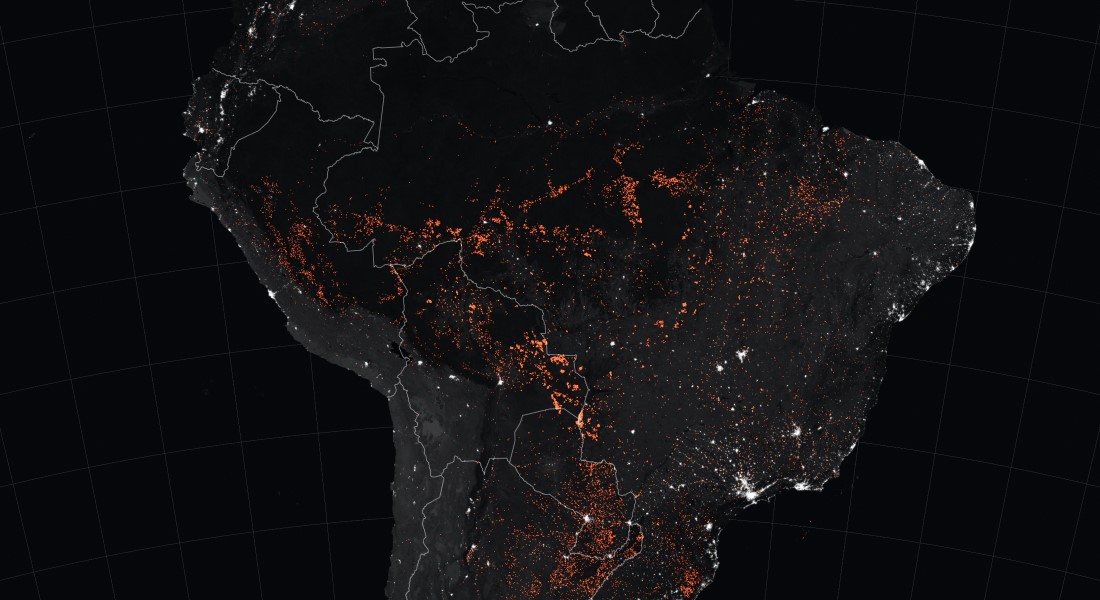Wildfires: When nature strikes back politically
With support from the Independent Research Fund Denmark, anthropologists from the University of Copenhagen will investigate how the extensive rainforest wildfires in 2019 in Amazon politically affected Brazil, Bolivia, and Peru.

Man-made climate change and environmental problems are high on the international agenda, and research plays a key role in identifying problems and finding political responses to the challenges.
But what political processes begin when environmental accidents eventually occur? When nature figuratively strikes back at the political system? This is the overarching question behind a new project, which will be anchored in Department of Anthropology thanks to a grant of DKK 6 million from Independent Research Fund Denmark.
It focuses on the approximately 100,000 small and large wildfires, which in 2019 spread across large parts of the Amazon rainforest and Amazon biome and ended up capturing the Brazilian metropolis Sao Paolo in smoke.
Brazil, Bolivia and Peru were all hit hard by the fires, which created political attention both nationally and internationally, with climate activists, scientists and politicians warning that local deforestation and conversion to agricultural land brought the world closer to one of the climatic 'tipping points'. A situation where irreversible changes occur throughout the system.
The exact causes of the fires are not at the centre of the new research project, which has been titled 'Fire and Political Alterity in Amazonia '. Rather, it investigates the subsequent political effects:
"Both scientifically and politically, the focus has been on what causes climate and environmental disasters, and how we can prevent them. We are turning this around and investigating the effects of the fires on the political processes in the three countries as well as internationally," says Associate Professor and Project Manager Stine Krøijer, Department of Anthropology.
Political consequences in four areas
The project will be carried out in collaboration with the University of Austral in Chile and leading environmental anthropologists in Denmark, the USA and Brazil. Supported by local fieldwork, the project will identify and analyse the importance of forest fires for:
- Shifts in national and international climate policies with a focus on Brazil and the global ' tipping point ' known as 'The Amazon dieback'. The fires have thus reinforced political discussions about deforestation in Amazonas and the debate on the country's attitude to international climate regulation.
- Changes to land rights in the border area between Brazil, Bolivia and Peru, where the rights of indigenous peoples are under pressure.
- New regulation of soy production and the effect of companies' CSR policies in relation to reducing deforestation in the soy supply chains.
- Political development and polarisation, particularly in Bolivia, where the fires have added to a changing political landscape.
Even though the project focuses on the political importance of forest fires in South America, Stine Krøijer also expects it to provide new knowledge on the political footprint of environmental disasters:
"Other countries experience radical and abrupt environmental events which will probably become more frequent and more dramatic with climate change. Here, the fires in 2019 are a chance to analyse the political consequences we can expect from such events. New knowledge that can be included in political scenarios for future climate change."
The project will run until 2025. Also see the Danish press release on the website of Independent Research Fund Denmark.
Contact
Stine Krøijer
Associate professor
Department of Anthropology
E-mail: stine.kroijer@anthro.ku.dk
Phone: +45 35 32 15 81
Søren Bang
Journalist
Faculty of Social Sciences
E-mail: sba@samf.ku.dk
Phone: +45 29 21 09 73
